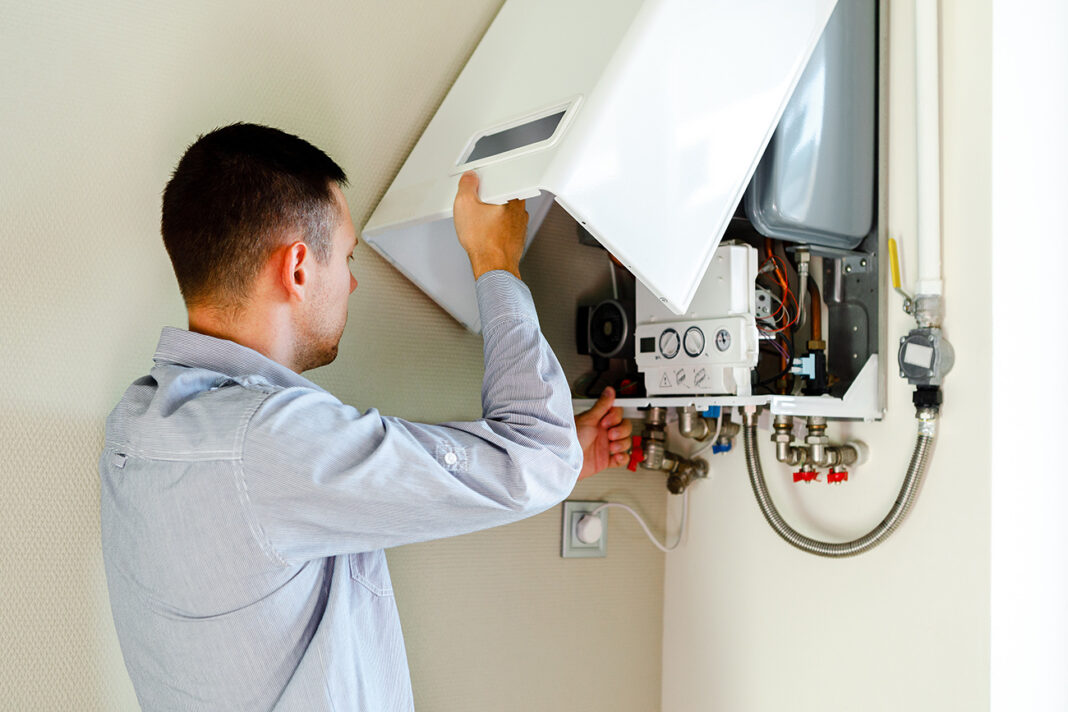In today’s modern homes, access to hot water is taken for granted. From warm showers to clean dishes and laundry, we rely heavily on our water heaters to provide us with the comfort and convenience we need. However, many homeowners fail to realize that these essential appliances require regular maintenance to ensure efficient performance and avoid costly repairs or replacements.
1: The Importance of Regular Water Heater Maintenance
A water heater is an essential appliance in any household, providing hot water for bathing, cooking, and cleaning. Like any mechanical system, it requires regular maintenance to ensure efficient performance and avoid costly repairs or replacements. Neglecting water heater maintenance can lead to decreased efficiency, increased energy consumption, and even potential safety hazards. Once you understand the importance of regular upkeep, you can hire professionals near you for the same. For instance, if you live in Ohio, look for Ohio water heater maintenance professionals.
2: Checking the Pressure Relief Valve
One of the most critical components of a water heater is the pressure relief valve. Its primary purpose is to release excessive pressure inside the tank in case of a malfunction or buildup caused by sediment accumulation. Homeowners can prevent potential overheating and bursting of their water heater tanks by regularly testing the pressure relief valve. By simply lifting the valve’s lever and allowing some water to flow out, they can ensure it’s functioning correctly.
3: Flushing Out Sediment Buildup
Over time, sediment tends to accumulate at the bottom of a water heater tank due to minerals present in tap water. This buildup significantly reduces efficiency and causes unnecessary strain on the system, increasing energy consumption as well. By regularly flushing out this sediment from the tank, homeowners can prevent premature wear on heating elements and improve overall performance.
4: Adjusting Thermostat Settings
Water heaters typically come with adjustable thermostats that allow homeowners to control the temperature of their hot water supply. Keeping the temperature between 120 and 130 degrees Fahrenheit (49 and 54 degrees Celsius) not only ensures comfort but also prevents scalding accidents. Regularly checking and adjusting thermostat settings, if necessary, helps maintain optimal efficiency while promoting safety.
5: Insulating Water Heater Tanks
To further improve efficiency and reduce heat loss, homeowners can consider insulating their water heater tanks using an insulating blanket or jacket. This simple step helps the system retain heat, especially in colder climates. However, it is crucial to follow manufacturer guidelines to prevent covering any important components or damaging the heater.
6: Testing the Anode Rod
Water heaters contain sacrificial anode rods that help prevent corrosion within the tank. These rods require regular inspection and replacement if necessary to avoid leaks or premature tank failure. Homeowners can easily test the anode rod by shutting off the cold water supply, draining some water from the tank, and loosening it with a wrench. If more than six inches of core wire are exposed or severe degradation is visible, a replacement may be necessary.
7: Inspecting and Repairing Leaks
Leaks are never a good sign for water heaters. They not only waste precious water but also indicate potential internal damage that can compromise performance over time. Homeowners must inspect their water heaters regularly for any signs of leakage, such as pooling water or wet spots on the floor or walls nearby. If leaks are detected, immediate action should be taken by calling a professional plumber for repairs.
8: Checking Water Connections
Another crucial preventive step is to inspect all water connections regularly. Loose fittings or deteriorating pipes can lead to leaks or inadequate heating performance. Homeowners should examine both ends of inlet and outlet pipes connected to their water heaters and ensure that they are tightly secured without any visible signs of corrosion.
9: Clearing Ventilation Spaces
Proper ventilation is vital for gas-fired water heaters, as it ensures the safe exhaust of combustion gases. Homeowners should make sure that there is sufficient clearance around their equipment according to manufacturer guidelines. Avoid storing items near the heater that could obstruct airflow through vents, as this affects performance efficiency and poses potential safety hazards.
10: Scheduling Professional Maintenance
While homeowners can perform several maintenance tasks themselves, hiring skilled professionals for periodic inspections and servicing is equally important. Professional plumbers can identify potential issues that may not be noticeable to the untrained eye. They can also perform essential tasks such as testing gas lines, inspecting electrical components, and thoroughly cleaning the entire system. Their assistance can help lower your energy bills and do much more.
Conclusion
By following these ten preventative steps, homeowners can ensure efficient performance and a prolonged lifespan for their water heaters. Regular maintenance saves money on energy bills and minimizes the risk of sudden breakdowns or costly repairs in the future. Understanding the importance of water heater maintenance is crucial for every household, and incorporating these tasks into a regular routine helps maintain a consistent supply of reliable hot water throughout the year.






